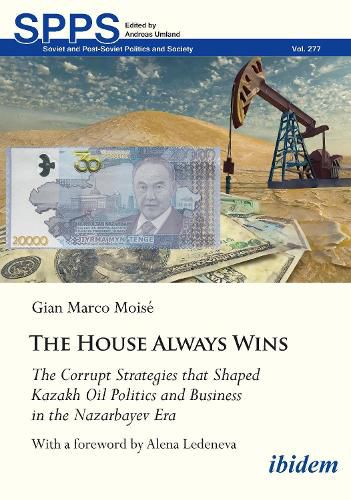Readings Newsletter
Become a Readings Member to make your shopping experience even easier.
Sign in or sign up for free!
You’re not far away from qualifying for FREE standard shipping within Australia
You’ve qualified for FREE standard shipping within Australia
The cart is loading…






Every couple of years, a new corruption scandal of the oil industry draws the attention of worldwide media: The International Consortium of Investigative Journalists describes the complex schemes of shell companies, international transfers, and hidden tax havens that the political elites of resource-rich countries exploit to embezzle the wealth of the land they should be protecting; dozens of books discuss at length how kleptocrats and their informal circles spend millions of dollars virtually undisturbed in the general hypocrisy of world leaders. This is what we know, but how do the actors of the oil sector shape their relationships through informality?
Using Kazakhstan as a case study, Gian Marco Moise explores the various ways in which corruption and informal governance converged and were shaped by the everchanging power dynamics between the different actors participating in the industry. Complemented by discussions on other rentier economies, each practice of the taxonomy is presented as a specific strategy employed by the predatory elite to achieve different governance objectives. As these practices normalize, their effects trickle down into an increasing inequality that contributes to the generalized informality of the lowest ranks of the industry.
$9.00 standard shipping within Australia
FREE standard shipping within Australia for orders over $100.00
Express & International shipping calculated at checkout
Every couple of years, a new corruption scandal of the oil industry draws the attention of worldwide media: The International Consortium of Investigative Journalists describes the complex schemes of shell companies, international transfers, and hidden tax havens that the political elites of resource-rich countries exploit to embezzle the wealth of the land they should be protecting; dozens of books discuss at length how kleptocrats and their informal circles spend millions of dollars virtually undisturbed in the general hypocrisy of world leaders. This is what we know, but how do the actors of the oil sector shape their relationships through informality?
Using Kazakhstan as a case study, Gian Marco Moise explores the various ways in which corruption and informal governance converged and were shaped by the everchanging power dynamics between the different actors participating in the industry. Complemented by discussions on other rentier economies, each practice of the taxonomy is presented as a specific strategy employed by the predatory elite to achieve different governance objectives. As these practices normalize, their effects trickle down into an increasing inequality that contributes to the generalized informality of the lowest ranks of the industry.